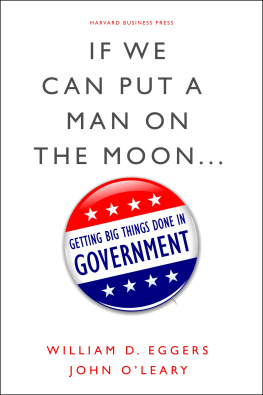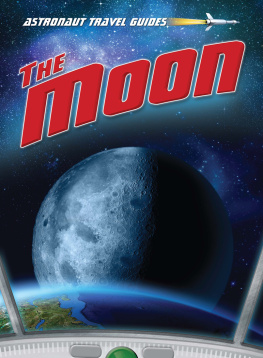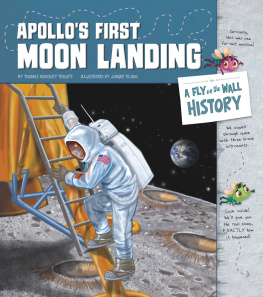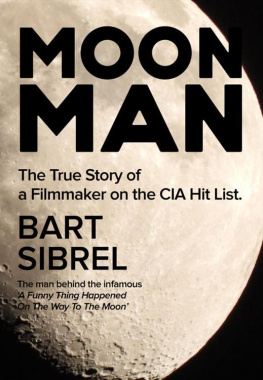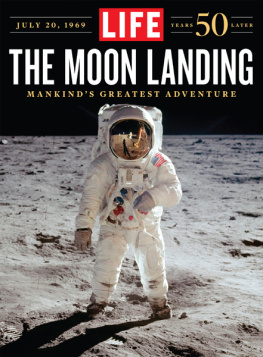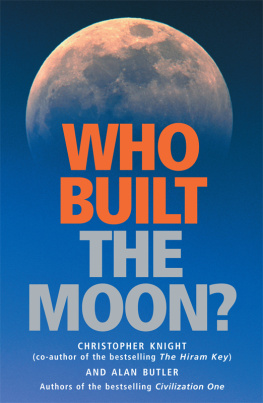Acknowledgments
This is the second book the two of us have written together. The first, Revolution at the Roots , was written a little more than fifteen years ago. We are now older and hopefully wiser, but still committed to the enduring challenge of trying to make the great experiment of democracy a raging success.
It is a clich no less than our title, but this book truly was a team effort. We express our most heartfelt gratitude to all those who assisted in the research, data collection, and manuscript review. This book is immeasurably better for their input, and the authors absolve all such participants for any errors, omissions, or faulty reasoning that found its way into the final productthat stuff is all ours.
The financial prospects for public-sector management books are bleak. For this reason alone, two organizational sponsors deserve special thanks. Deloitte allowed Bill to devote significant time to this book in his role heading up the firms public-sector thought leadership practice, while the National Academy of Public Administration supported John in researching and writing the book on a special grant. The economic support of these organizations is greatly appreciated, but it only begins to tell the story of how they enriched the final product.
No one at Deloitte played a more important role in making If We Can Put a Man on the Moon a reality than Bob Campbell, a longtime colleague and close friend. Bob has been advising government leaders for more than three decades. His encyclopedic policy knowledge, combined with his decades of experience leading major government transformation initiatives, gives him a truly unique perspective that we tapped into time and again over a two-year period. In addition to giving generously of his time for interviews and brainstorming, Bob read the manuscript cover to cover twice. His frank and often tough feedback made this a much better book than it otherwise would have been.
Many other Deloitte colleagues played a critical role. A dinner conversation with Greg Pellegrino helped to inspire the initial idea for the book. Greg also provided leadership support at critical times throughout the book project. John Levis, Vikram Mahidhar, Ajit Kambil, and Mark Klein also provided strong and continued support throughout the process. Vikrams sage advice for how to frame the book also proved critical.
Ryan Alvanos and Jon Warshawsky, both extremely talented writers and editors, put in countless hours helping us to improve the books language and logic. Pakshalika Jayaprakash and Aditi Rao also provided critical editorial support. Tiffany Dovey and Dwight Allen read multiple chapters and offered dozens of thoughtful suggestions. Ashish Singh Gambhir, Alec Kasuya, Anchal Shrivastava, and Shalabh Singh provided top-notch research assistance. Prasad Kantamneni assisted in the survey design and analysis. Terri Prow set up the interviews. Wade Horn provided valuable feedback on the manuscript. Terri Beck, Casey Haugner, Soy Park, and Holly Wilmot coordinated the marketing effort. Thanks also to the following Deloitte colleagues for generously offering their time and insights: Cathy Benko, Peter Brown, Todd Cain, Jason Charter, John Dalrymple, Tom Davis, Simon Dixon, Bill Ezzell, Rick Funston, Brian Green, Ernie Gregory, Marty Goldberg, Ira Goldstein, Carlo Grifone, Janet Hale, Heather Hanford, Dan Helfrich, Anna Hight, Matthew Hudes, Elina Ianchulev, Ira Kalish, Paul Keckley, Keith Leslie, Naomi Leventhal, Paul Macmillan, Michael McMullan, Doug Palmer, Gene Procknow, General Harry Raduege, Sally Ride, Jordan Schiff, Jeff Schwartz, Brian Siegal, Ian Simpson, John Skowron, Ellen Stewart, Branko Terzic, Leif Ulstrup, Peter Wallace, and Tim Wiest.
The other critical partner in this project was the National Academy of Public Administration (NAPA), a nonprofit independent coalition of top public management and organizational leaders, chartered by Congress. The National Academy is the oldest and most respected organization in the country specifically dedicated to the topic of this book: public management. In numerous ways, it provided insights and access to the collective wisdom of an incredible collection of dedicated, experienced public servants who serve as National Academy Fellows. Thanks especially go to Jenna Dorn, NAPAs dynamic president, former NAPA vice president Frank DiGiammarino (now a key official in the Obama administration), vice president Lena Trudeau, and prominent management expert and Fellow Dwight Ink. NAPA Fellows gave generously of their time as part of the project, both in participating in our survey on execution and through many one-on-one interviews.
When we began the daunting task of reviewing more than seventy-five major public undertakings spanning more than sixty years, we realized that to do it right would require a small army of intelligent, thoughtful individuals who understood government and yet were willing to work for free. The answer was clear: we needed grad students. This work could not have been accomplished without the assistance of both students and faculty from Americas leading graduate schools of public policy and administration. More than seventy graduate students participated in the research project, drafting case studies and testing and re-testing our frameworks against these real-world examples. Special mention goes to Kevin Bacon, a faculty member of the Lyndon Baines Johnson School of Government at the University of Texas, whose class did a year-long research project in conjunction with the research for this book. Thanks to Kevins inspired leadership, the class did some groundbreaking work on executing major transformation initiatives. Kevin also read the entire book manuscript and offered dozens of helpful comments. Thanks also go to Charis Varnum at Columbia Universitys School of International and Public Affairs, and Alessandro Acquisti and Lynn Pastor at Carnegie Mellon for offering up their students to work on the book project.
The graduate students participating in the book project were: Abed Ali, Carolyn Carnahan, Stephanie Counts, and Elizabeth Krimmel (American University); Basil Al Essa, Kedar Kamalapur, Robert Kaminski, Patrick Mallory, Ryan Menefee, Vasudeva Ramaswa, Mark Rutledge, Deepak Sharma, Mary Sheridan, Arun Varadharajan, Seth Watson, and Marc Wautier (Carnegie Mellon University); Alexander Bock, Helen Cao, Jorge Cervantes, Almudena Fernandez, Rose Carmen Goldbert, Sudipti Gupta, Jingjia He, Jennifer Holowchak, Akiko Ito, Yasuyuki Matsui, Maminirina Rakotoarisoa, Toru Sashida, Benjamin Villanti, Qian Wu, and Tomohiko Yamamoto (Columbia University); Michael Bergen (Georgetown University); Betty Feng, Daniel Honker, Kathleen Logisz, Lindsey Seelhorst, Audrey Vaughn, and Kristen Warms (George Washington University); John Cassidy, Jarrod Loadholt, and Stella Tsay (Harvard University); Justine Lazaro, Andrew Lee, Melinda Mattes, and Sarah Minor-Massy (University of California, Berkley); Jennifer Breckheimer, Jackie Clemente, and Shafiq Meyer (University of Southern California); Catherine Bendowitz, Elise Braun, and Alyssa Oldani (University of Chicago); Luke Brennan, Greg Campion, Lawrence Crockett, Tom Czerwinski, Erin Daley, Andrew Farmer, Fritz Fitzpatrick, Lori Gabbert Charney, Jennifer Gorenstein, Julia Harvey, Ashlynn Holman, Colleen Kajfosz, Brian Larson, Jason Modglin, Raenetta Nance, Sherry Penson, Sanvita Sample, and Jeff Schulz (University of Texas, Austin).
In addition, Peter Harkness, a good friend and founder of Governing magazine, read the draft and provided helpful suggestions. Merrill Douglas and Marty Gottron provided excellent editorial assistance. Other friends and colleagues from the world of business and government were kind enough to review the book, including Charlie Chieppo, Ian Doughty, Robert Knisely, Boyd Peterson, and James Stergios.

